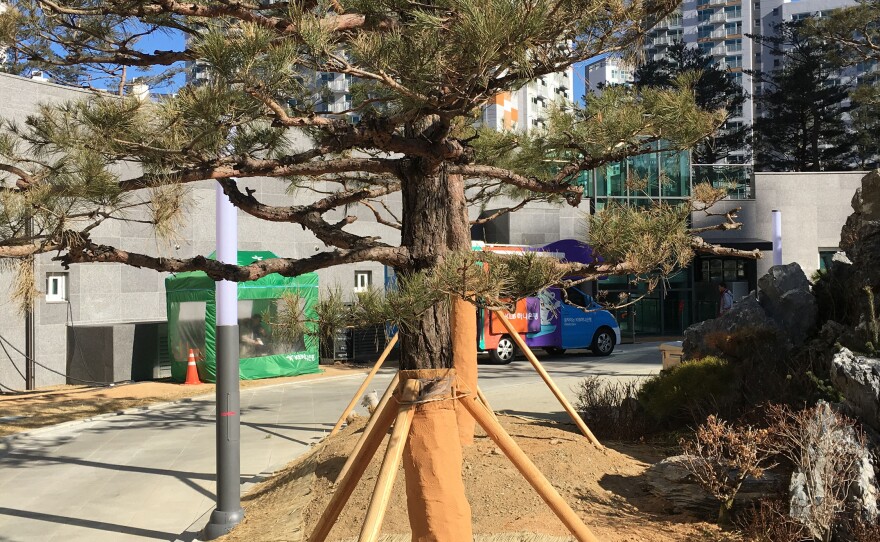We expected the cold. It was, after all, the Winter Olympics.
But the wind is what has made an impression on many of us visiting Pyeongchang. It's even caused competition schedules to be rewritten.
For a string of days last week, the wind blew steady at 15 to 20 mph, with gusts of 45 mph. Concession stands and security scanners were toppled; temporary tents were blown away.
On the worst day, it looked as if a massive dust storm had descended. Three days later, we were still shaking sand out of our boots.
Suddenly, in that roaring wind, I understood the purpose behind the elaborate systems of ropes and wooden bolsters that surrounded many trees in Pyeongchang and its sub-host city, Gangneung. In this area, the winds come down from Siberia; they're often funneled by mountain passes.
The care and craft that had gone into supporting these trees — young and old, pine and deciduous — was evident. Some of the work looked very old: bamboo and twine, weathered into a gray patina. And some of it looked new: thick wooden dowels joined by notches and hardware.
All of it was done to help trees survive. And as the winds howled, it was touching to realize that a small army of people had cared enough to protect their trees from the random destruction nature can bring.
Copyright 2021 NPR. To see more, visit https://www.npr.org. 9(MDAxODg3MTg0MDEyMTg2NTY3OTI5YTI3ZA004))









